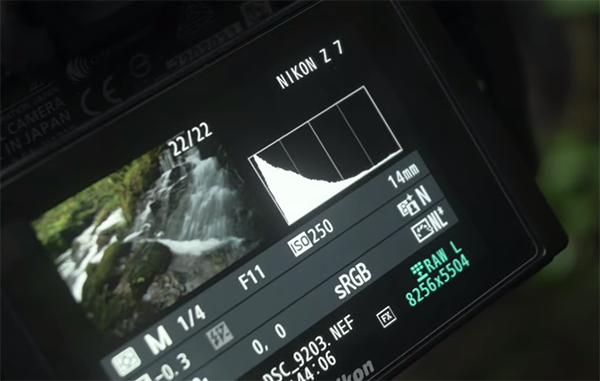Tired of Blown Highlights & Crushed Shadows? Watch This (VIDEO)
Getting proper exposures when shooting in the field can be a real challenge, especially when shooting under uneven and ever-changing light. The result can be blown-out highlights, crushed shadows, or a combination of both.
Today’s tutorial from a British pro provides several straightforward tips for getting the light right that will greatly increase your odds of success. This way you can trust your exposure skills and concentrate on other aspects of your work.
Henry Turner is a British landscape photographer who regularly takes us along on his adventures, while demonstrating behind-the-scenes secrets to his success. As he says, until to know how to consistently nail exposure, you can’t really move on to other important considerations like mastering composition, achieving precise focus, and improving your visual storytelling skills.

Turner begins with a difficult scene of a small waterfall full of bright highlights. The challenge with this shot is that the bright waterfall is surrounded by dark foliage—with deep shadows throughout the scene. The tool he uses to manage the exposure is the histogram on the rear LCD of the camera.
He’s shooting at 14mm with a shutter speed of ¼ sec. to achieve a “nice milky look” with the water. His ISO is 250 with an aperture of f/11. As you’ll see, these settings result in a perfect histogram. There’s a lot going on in the scene, and you’ll pick up valuable composition tips as you watch Turner capture the shot.
Turner moves on to another peaceful location in the Lake District and finds a scene with different challenges. Once again, he carefully interprets the histogram to arrive at a proper exposure. The goal is to avoiding clipping the right or left side of the graph and let the midtones fall in place. As a result, detail is retained in both the shadows and highlights.

Some cameras feature a “live histogram” that displays the exposure changes you make in real time. Turner explains how to use that, and he provides an alternate approach if your camera doesn’t offer this relatively new capability.
There’s much more to learn in this 16-minute lesson, and by the time you’re done watching bungled exposures will be a thing of the past. You can find more tips and tricks on Turner’s instructional YouTube channel, so consider it a valuable resource in the future.
And be sure to check out another tutorial we posted recently, discussing several common landscape photography fails and how to get things right.





